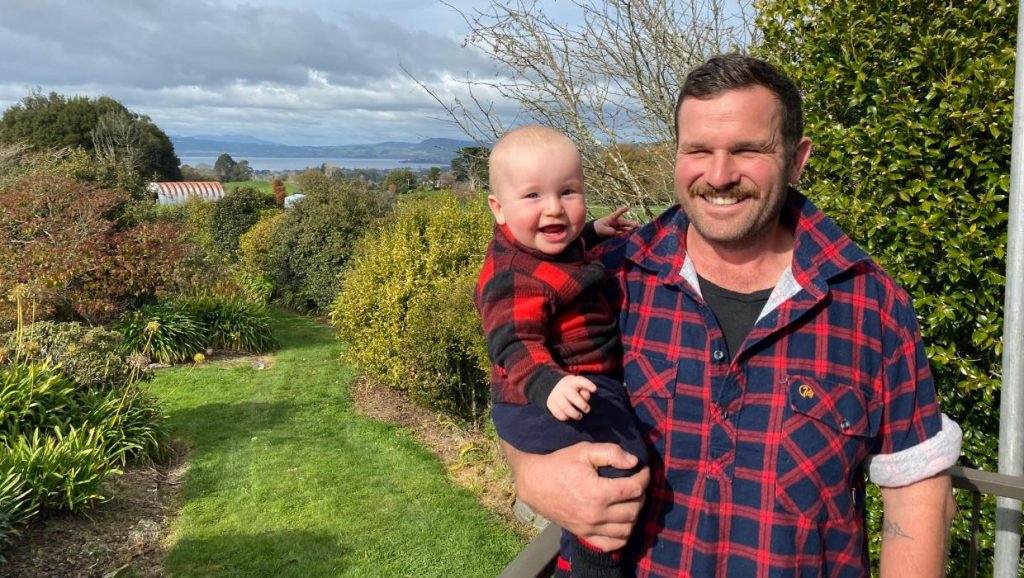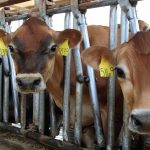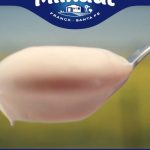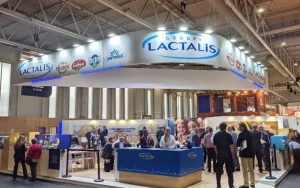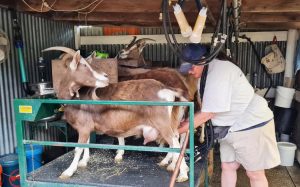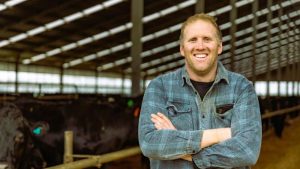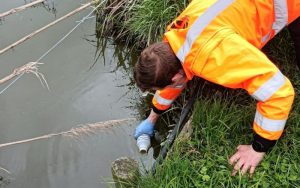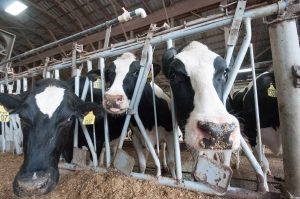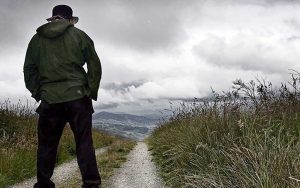
Rotorua farmer Doug Dibley says the constants of farming are change, adaptation and hard-work. Another constant on the land he farms is family.
The first generation of his family to farm the land in 1887 were his great-great grandparents Charlie and Fanny Karl, who fell in love with the area after a pig hunting visit.
“Their daughter Susan Karl married my great-grandfather Douglas Dibley who was the last Anzac survivor from Gallipoli in WWI. My grandfather Eddie Dibley turned 95 last year and still lives on the farm.”
 The first generation of his family to farm the land in 1887 were his Great Great Grandparents Charlie and Fanny Karl.
The first generation of his family to farm the land in 1887 were his Great Great Grandparents Charlie and Fanny Karl./ Supplied
Dibley is a DairyNZ Environment Leader (DEL) sharing his learning and networking with other farmers across the country.
He did his honours degree at the University of Canterbury in geography and environmental science studying water quality in the Rotorua Lakes catchment and mitigation methods farmers could use to reduce environmental impacts.
“I studied the leading contaminants and remedial activities which could be done on the farm to reduce the impact.”
On the back of that research, the Bay of Plenty Regional Council created a summer internship for him working with the farmers in the Rotorua catchment area
“One of things I did was map effluent blocks and traffic light risk based on soil type and contour.”
One of his roles in the past was as a Sustainable Dairy Advisor with Fonterra. He was later appointed demonstration manager with Owl Farm, a position he held for two years.
He then went back to Fonterra as sustainable dairying manager for the North Island, then regional farm operations manager for the central North Island looking after the sustainable dairy team.
Dibley says there are big philosophical decisions that need to be made around farming systems and styles in New Zealand at the moment.
“Our productivity and profitability is being challenged at the moment because of rules and regulations, but we would be naive if we didn’t think the entire country is going to be under restrictive rules in some form in the future.
“We have opportunities to be the first catchments in the process of transitioning to a more sustainable productive model. But you have to be profitable to be sustainable. If you can’t pay the bills, it is hard to invest in sustainable outcomes on farm.”
 Doug Dibley with son Sam Dibley, seven months old, with Lake Rotorua in the distance.
Doug Dibley with son Sam Dibley, seven months old, with Lake Rotorua in the distance.Bethwyn Littler / Stuff
Dibley says in order to drop emissions 10% by 2027 they will need to start looking at some big ticket items such as stocking rate, fertiliser and feed because they have picked the low hanging fruit up until now.
“We have dropped maize from our nutrient plan as well as summer cropping and slightly reduced our nitrogen applications and stocking rate to ensure we meet the reducing nutrient cap we farm within.”
The current farm is 150ha of effective land, around 200ha in total, however they lease some further land for young stock. They are currently milking 460 cows.
“Our plan is to potentially retire around 25ha of steep and marginal land into pine trees. The flatter land which is more fertile grows great grass throughout the year. We would rather still have a higher stocking rate which can harvest the grass in areas it grows well and potentially retire other steeper more marginal country to focus on productivity and therefore profitability.”
He says the farm is one of four in Bay of Plenty working with DairyNZ to showcase the use of plantain.
“We have started over-sewing the whole farm in plantain and we are seeing great benefits in feed and also a reduction in nutrient leaching.”
Although he has gained experience and expertise in the corporate world, once he had children it became important to bring them back to the farm environment.
“There is also a sense of generational responsibility even though Mum and Dad certainly never stressed the point.
“There is a lot happening for us at the moment which can be daunting and exciting. We look at it as a challenge and an opportunity. This farm looks very different to five years ago and it will look different again in 10 years. Our goal is to get it to a point where there are fewer animals, fed better and more production achieved per cow.”
Dibley says although he has hard days, farming is ingrained in him and it is very rewarding.
“There is a pull to the land. I always have my mind on the long-term and I am driven by finding ways to future-proof the farm in terms of profitability, productivity and sustainability.”
Alongside his family, he says one man, a farmer, influenced him early on in his journey.
“When I was with Fonterra, I met Martin Bennett who farms just out of Putaruru and is one of the original DELs. He was a mentor and I went on the Owl Farm journey with him.”
 At the moment Dibley is involved in developing a subdivision his parents have been working on for more than 20 years.
At the moment Dibley is involved in developing a subdivision his parents have been working on for more than 20 years.Bethwyn Littler / Stuff
Dibley is currently involved in developing the subdivision his parents started working on more than 20 years ago.
“The subdivision was always a long-term strategy for Mum and Dad in order to clear debt which is more important now than ever. Given the generational aspect of our farm it was important the subdivision continued this legacy.
“We haven’t left any stone unturned and have developed a subdivision to a high standard to reflect the care and attention we have always shown the land.”
The subdivision covers 40 hectares with 33 lots. They have already sold a few sections and Doug and his young family are planning to start their own build soon.
“Subdividing is a form of diversification but I’ve done the numbers and dairying is still going to be the most profitable return at scale.”
You can now read the most important #news on #eDairyNews #Whatsapp channels!!!
🇺🇸 eDairy News INGLÊS: https://whatsapp.com/channel/0029VaKsjzGDTkJyIN6hcP1K
